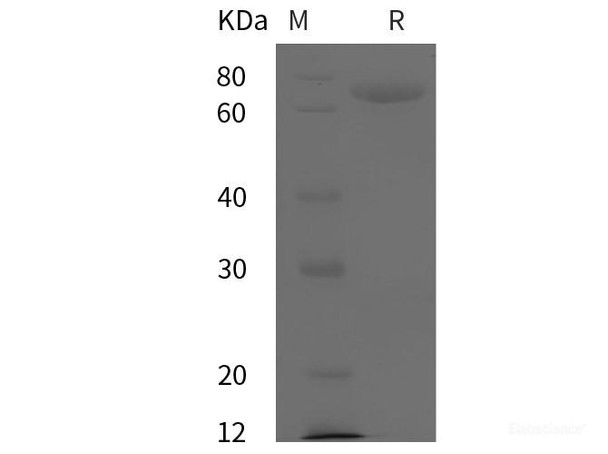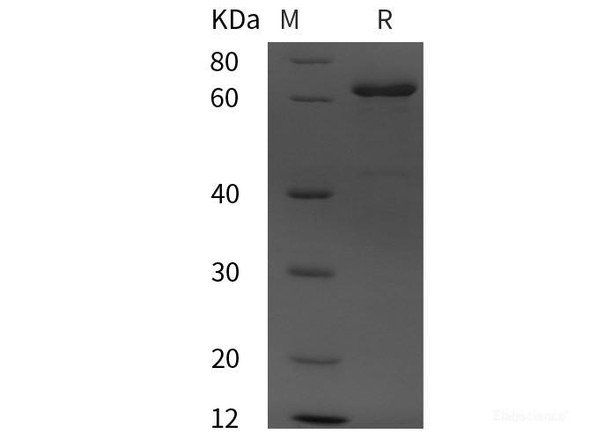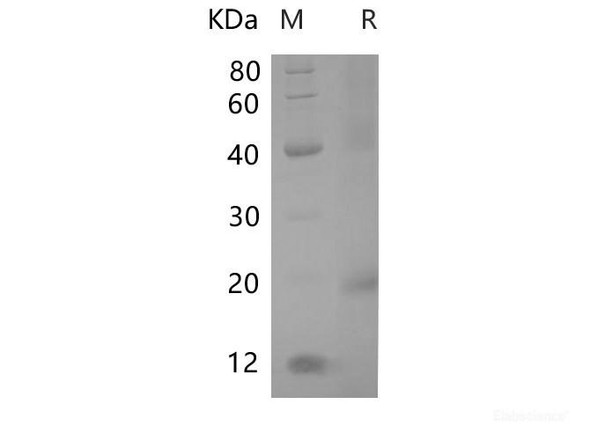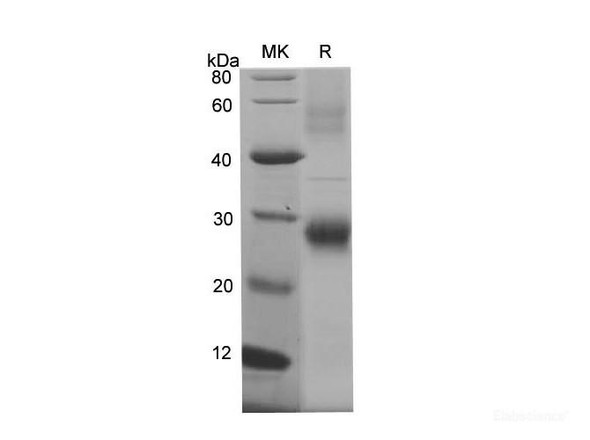| Sequence: | Met1-Val605 |
| Accession: | P02772 |
| Storage: | Generally, lyophilized proteins are stable for up to 12 months when stored at -20 to -80°C. Reconstituted protein solution can be stored at 4-8°C for 2-7 days. Aliquots of reconstituted samples are stable at < -20°C for 3 months. |
| Shipping: | This product is provided as lyophilized powder which is shipped with ice packs. |
| Formulation: | Lyophilized from sterile PBS, pH 7.4. Normally 5 % - 8 % trehalose, mannitol and 0.01% Tween80 are added as protectants before lyophilization. Please refer to the specific buffer information in the printed manual. |
| Reconstitution: | Please refer to the printed manual for detailed information. |
| Background: | Alpha-fetoprotein (AFP) is classified as a member of the albuminoid gene superfamily consisting of albumin, AFP, vitaminD (Gc) protein, and alpha-albumin. AFP is a major plasma protein produced by the yolk sac and the liver during fetal development. It is thought to be the fetal form of serum albumin. AFP binds to copper, nickel, fatty acids and bilirubin and is found in monomeric, dimeric and trimeric forms. AFP is one of the several embryo-specific proteins and is adominant serum protein as early in human embryonic life as one month, when albumin and transferrin are present in relatively small amounts. It is first synthesized in the human by the yolk sac and liver (1-2 months) and subsequently predominantly in the liver. A small amount of AFP is produced by the GI tract of the human conceptus. It has been proved that AFP may reappear in the serum in elevated amounts in adult life in association with normal restorative processes and with malignnt growth. Alpha-fetoprotein (AFP) is a specific marker for hepatocellular carcinoma (HCC), teratoblastomas, and neural tube defect (NTD). |










